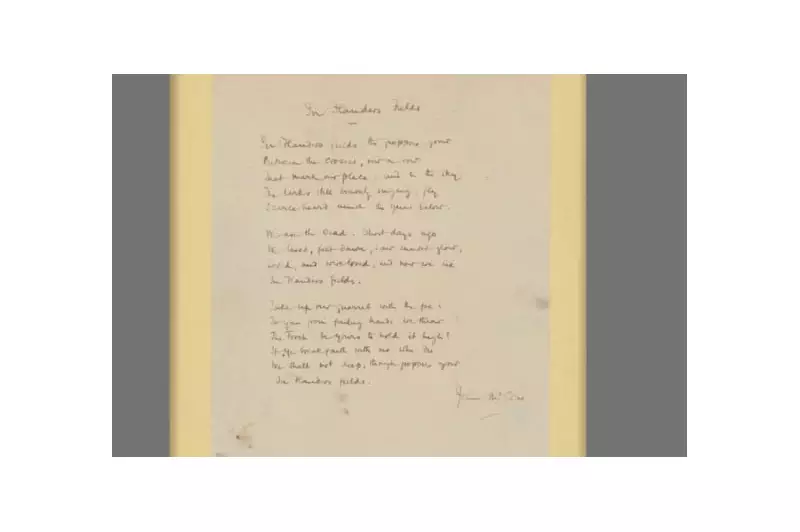
In a momentous announcement timed perfectly for Remembrance Day, McGill University has revealed that its precious handwritten copies of John McCrae's immortal war poem "In Flanders Fields" have been formally recognized by UNESCO's Memory of the World Programme. This prestigious international acknowledgment celebrates the profound historical significance of these fragile documents that have captured Canadian hearts for over a century.
A Poetic Legacy Preserved for Eternity
The UNESCO designation covers three distinct handwritten versions of the iconic poem carefully safeguarded within McGill's Osler Library of the History of Medicine. These aren't mere copies—they're living artifacts that trace the poem's journey from the battlefields of World War I to its permanent place in Canada's cultural consciousness.
The Three Treasured Manuscripts
The earliest version, penned in 1915, represents McCrae's original vision. A second copy, written in 1918 shortly before his death, shows the poem's evolution. Most poignant is the third manuscript—a version McCrae created specifically for a young admirer, demonstrating the poem's immediate impact beyond the trenches.
Why This UNESCO Recognition Matters
UNESCO's Memory of the World Programme serves as the global guardian of documentary heritage, ensuring that humanity's most precious documents survive for future generations. The inclusion of "In Flanders Fields" places McCrae's work alongside other world treasures, cementing its status not just as Canadian heritage but as global cultural patrimony.
Ann Marie Holland, McGill's valuable collections librarian, expressed the significance of this honor: "This recognition validates what Canadians have known for generations—that 'In Flanders Fields' transcends its origins to speak universal truths about sacrifice, memory, and the human cost of conflict."
The Perfect Remembrance Day Timing
The UNESCO announcement arrives as Canadians prepare to observe Remembrance Day, adding profound depth to this year's commemorations. The timing creates a powerful bridge between contemporary remembrance practices and the historical artifacts that gave them meaning.
As Holland notes, "Holding these manuscripts as Remembrance Day approaches reminds us that behind every poppy, every ceremony, there are real stories of real people. McCrae's words continue to give voice to those who served."
Preserving Living History for Future Generations
This UNESCO recognition ensures that these delicate manuscripts will receive the highest standard of conservation care. The designation brings international expertise and resources to support McGill's ongoing preservation efforts, guaranteeing that future generations can connect directly with this tangible piece of Canadian history.
The handwritten copies show McCrae's creative process in real time—crossed-out words, thoughtful revisions, and the very ink he used to capture one of history's most powerful anti-war statements. They represent not just a poem, but a moment frozen in time when a military surgeon transformed his grief into enduring art.
As Canadians don their poppies this November 11th, the UNESCO recognition adds new meaning to McCrae's timeless words, ensuring that the torch of remembrance continues to be passed high against the dark of our collective history.





